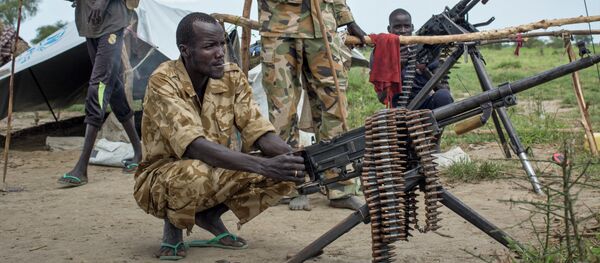The interview came after at least eight people in a UN camp for internally displaced people in South Sudan were killed as a result of renewed clashes in this northeastern African country.
Yevseyev specifically drew attention to the fact that South Sudan ranks third in Africa in terms of oil reserves, a fact which has repeatedly turned the country into a hotspot for clashing geopolitical interests.
Everybody talk about #SouthSudan ethnic tensions, but what if this wasn't all? What if somebody used it in order to stage a coup? #Juba
— Itay Ron (@itayron5) 9 июля 2016 г.
"Some circles interested in reducing China's influence in Africa on the whole may be behind the latest events in South Sudan. Given that the US and its allies have repeatedly opposed China's African clout, it is safe to assume that the US intelligence agencies could add to the deterioration of the situation in South Sudan," he said.
He was echoed by Tatyana Deych of the Moscow-based Institute for African Studies, who said that the current escalation of the conflict in South Sudan may damage China's oil interests in the country.
"Suffice it to recall the simmering conflict between Sudan and South Sudan after the latter was recognized as an independent state, something that led to a decrease in oil production and a drop in oil supplies abroad. This is why the current conflict will most likely affect South Sudan's oil production and export supplies," she said.
Currently, 80 percent of South Sudan's oil exports are sent to China, with Chinese firms remaining the main shareholders of the two major oil consortiums in South Sudan: Greater Nile Petroleum Operating Company and Dar Petroleum Operating Company. The China National Petroleum Corporation holds a 40 percent stake in a major joint venture dealing with South Sudan's oil reserves.
An armed ethnic conflict erupted in South Sudan in December 2013, 1.5 years after the nation gained independence from Sudan, when President Salva Kiir accused First Vice President Riek Machar of preparing a military coup. The conflict has forced more than a million people to flee their homes.
In August 2015, Kiir and Machar signed a peace deal that envisaged the formation of the Transitional Government of National Unity.
However, renewed fighting broke out last week and over 300 people have already lost their lives in the clashes, according to media reports.






